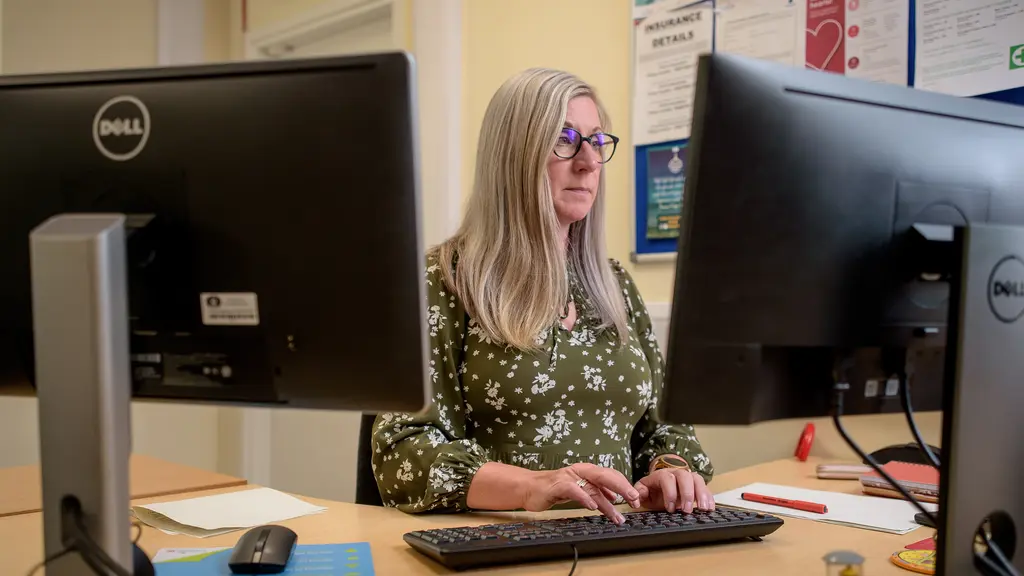I work in the team that looks after our brilliant storytellers who share their personal experiences in support of the Age Without Limits campaign. We have a great group of people who have shared experiences of being treated negatively because of their age. They do this because they want to use these negative experiences - and their experiences of fighting back against this prejudice - to inspire change for others. When it comes to overt ageist experiences, we find that the place where most of these stories come from is in the workplace or whilst applying for jobs.
What does ageism in the workplace look like?
Take Jill’s experience, for example. When a volunteer position opened up at the charity she worked for, she suggested bringing in an older person, "I pointed out that they’d bring a wealth of experience and likely be able to commit to volunteering for a longer period," Jill recalls. But the director's response left her stunned.
"They flat-out said, 'I'm sorry, but I can’t work with older people,' and then made some remark about how they’d struggle with laptops and couldn’t use Excel. I was floored. Worse yet, I was the only one who spoke up."
Stories like Jill’s, where offhand comments leave older workers feeling devalued and invisible, are too common. Individuals in their early fifties and beyond often describe how their work environment turns toxic, or how the job search becomes an uphill battle - sometimes years before retirement is even an option. For those who want or need to work past the state retirement age, the challenges only increase.
However, it doesn't need to be like this. You may have read John’s story where his employer worked to support him and keep him in the team. “In recent years my physical health has declined, and I began to find using stairs in my working day difficult as my mobility lessened. I thought about retiring on medical grounds, but then my employer suggested looking at other roles within the organisation that might suit me. Now I work as a virtual care centre operator, where I have an adapted chair and headphones, and can work shifts that suit my needs. It’s not always a negative story at work for people my age."
The challenges of finding a job as an older worker
We often hear from people who have worked their way steadily up the career ladder with a wealth of experience in their field who suddenly find the process of finding a job has changed and subtle insidious ageism makes job-hunting frustrating.
We heard from one frustrated jobseeker, Clare, 65, who has been made redundant: “The language used in job descriptions also seems designed to put-off older workers, implying that you need to be vigorous – meaning ‘young’ - to make a success of the role. Phrases like ‘dynamic’, ‘fast-paced team’, ‘hit the ground running’, and ‘blue-sky thinking’. I even saw adverts that said they’d welcome your sports skills if you are part of a sports team! Again, this doesn’t seem very inclusive."
“As I’ve become one of the oldest in workplaces, I’ve felt sidelined and treated less favourably than younger colleagues; always the first to be let go or demoted to taking meeting notes despite my extensive 20 years of experience."
Recruiters often have a long way to go when it comes to fostering inclusivity and overcoming age bias. Clare shared her experience: “For applications I was specifically told by recruiters to keep my CV short and focus on the last five years, so as not to give away my age, as they obviously thought that it would count against me."
It takes a lot of resilience to keep going when it feels like you aren’t getting anywhere, but here are some tips we’ve heard from people who have been successful:
- Look out for employers that show a commitment to being an age-friendly workplace – have they signed up to the Centre for Ageing Better’s Age-friendly Employer Pledge scheme for example. More than 400 employers have already signed up to the Pledge and are listed here.
- A skills-based section on your CV, highlighting key milestone moments in your career out of the traditional chronological experience format can help you. All your experience throughout your life work, home and volunteering, have given you so many transferrable skills and means you bring a unique set of expertise and potential to any job you choose to apply for.
- Many job interviews are competency based now, again don’t just focus on the most recent role you have had if you have a great example in your past to answer a question– you don’t have to say when it happened, just what.
- Ask for the interview questions in advance if they don’t provide them automatically, so you can really dig into what they are looking for, they often ask about skills and experience not already covered in the application.
- Remember a job interview isn’t just about finding out if you are suitable for the job, are they suitable employers for you – if they are displaying ageist attitudes in the recruitment process, then they may not be the best place to work.
We would love to hear from you if you have any tips you would like to share or if you want to share your story around ageist experiences or age-positive ones.
Visit our page on ageism in the workplace here.
Written by Clare Nightingale, PR and Celebrity Manager at Centre for Ageing Better.
